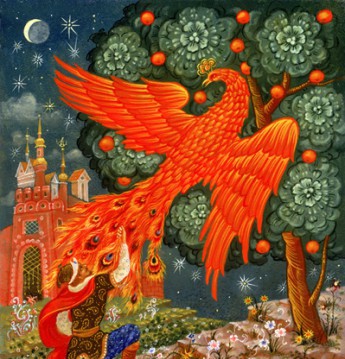 My final interview with a Thunderbolt Prize winner is with Susan Bennett, winner of the Fiction category in the Thunderbolt Prize.
My final interview with a Thunderbolt Prize winner is with Susan Bennett, winner of the Fiction category in the Thunderbolt Prize.
First of all, Susan, congratulations on your win! Your winning story, Bittersweet, was described by the Fiction judge, Felicity Pulman, as ‘making use of all five senses’ and being ‘perfectly shaped, with sensual descriptions.’ How did you come up with the central character, Tilly, the food writer? And how did you create the rich texture of the story?
Tilly? Well, I like my women characters to be strong and complex – flawed human beings rather than representations of ‘the fairer sex.’ And I think in part the story was a reaction to the pretension that is sometimes associated with cookery. Tilly is a lot less concerned with those aspects than she is with the joyous celebration of life that cooking and food represents. But as much her food epiphany gains her access to high society, Tilly never stops being the girl who came from nowhere. Among all of the new found sensuality that food awakens in her, she retains a hard streak and survival instinct that means she’s fully prepared to deal with the man who crosses her, even if she loves him.
In terms of the texture, much of it came from my own experience. I got into cooking Mexican food in a big way – proper Mexican food, not Tex-Mex. Living in Australia I couldn’t find the necessary ingredients, so I had to grow them myself. I ended up with over eighty chilli plants.
I’m inclined to sleepwalk, and my former partner used to catch me wandering out the bedroom door in the dead of night. When he asked me where I was going, apparently I would answer, “I’m just off to re-pot that chilli.” On another occasion he reported that I was tossing and turning in my sleep, crying out, “Bugger it! I’m not re-potting it, I’m not! I’m not!” I figure I must have made it outside some nights without him catching me, because I used to find chilli seeds in the bed when I woke up in the morning. My chilli crop attracted the attention of the police helicopter, but that’s another story.
Suffice it to say that learning to cook Mexican brought a whole new dimension to my love of cooking.
What attracts you to writing crime fiction?
Sometimes I think it’s because I get to bump people off on the page. A while ago it dawned on me that my stories kept ending with people dying even when I don’t mean them to. I noted that so far I have killed men by staking them, poisoning them, shooting them and by one other method that probably shouldn’t be mentioned here. And more than one mother-in-law hasn’t fared too well in my stories.
Crime fiction is an interesting genre because it is so varied, encompassing every style from the very literary to the hardboiled or cosy. I like the fact that a lot of crime fiction aimed at the mass market is so well-written.
Can you tell us a bit about your background and writing career?
In terms of work I’ve done everything from selling knives and camping equipment to working in technical support in the early days of personal computers. I’ve spent a lot of time in mercantile agencies (business reporting, credit ratings, debt collection) and in software houses. I’m at a crossroads at the moment and I’m not sure what my next step will be.
I settled on the idea of writing as a teenager, or more accurately, I was blessed with an inspirational English teacher who encouraged me to aspire to write professionally, and I will always be grateful to her. She personally selected books for me from the school library in her own time so that I didn’t have to read what the rest of the class was reading. Unfortunately I think you have to be an adult to appreciate the gift someone gave you as a kid. I wish I could thank her now and tell her how much it meant to me.
My writing career has probably taken a different path to most in that I started off writing novels then moved on to short stories, whereas many writers tend to do that the other way around. Writing short stories at first I missed the wriggle space a novel gives you. On the other hand with short stories, you get to play around stylistically in a way that I don’t think can be sustained over the course of a novel if you want it to be readable.
What do you hope winning the Thunderbolt Prize for fiction will do for you as a writer?
Specifically, the win pleased me because Bittersweet has been written for the general reader. It isn’t a particularly literary story, and until now I doubted that stories for mainstream readers could win competitions, so that made me happy.
As far as prizes go generally, I have been through every stage I think it’s possible to go through. At first I only entered competitions because editors, publishers and agents want to see prizes and commendations, and as those are the people I have to deal with, I felt it necessary to go after those prizes and commendations, but I can’t say I enjoyed the experience at first. I swore off entering for a while because it was just another source of rejection that I found discouraging.
Conventional wisdom has it that we should keep sending our work out, but I’d argue that if rejection is impacting on your ability to work, then there’s a case for taking a break from submitting, so that’s what I did for a while. It occurred to me that I just wanted a period to develop a relationship with my own work, without worrying what anyone else thought about it for a while. I asked myself some questions I hadn’t asked before, like why was I writing, who was it for and what did I want to get out of it – me – not anyone else.
It was an interesting and fruitful exercise because my work opened up a great deal more. It occurred to me that I had been writing defensively. When I went back to submitting after that hiatus, I started winning prizes immediately, which has had a surprising effect on my writing. I suppose it’s the encouragement. My work has opened up even more, become more ambitious. I feel more confident about realising the potential in the story.
What do you look for in a good story or novel?
One of the drawbacks to being a writer is that you are so accustomed to looking for faults in your own work, it can tend to make you more sensitive to the flaws in other people’s work too. I’ve been through stages where I can’t read because the smallest misstep spoils a book for me. You know you’re in trouble if you can’t read Bill Bryson without nit-picking.
I’ll read everything from Charles Dickens (a favourite) to Silence of the Lambs, but the writing always has to be quality.
You have a food blog, http://fudgingthemenu.blogspot.com.au/ How did that start?
Largely to support a cook’s organiser I have developed, but also as another creative outlet. Cooking and writing come from the same place with me, but that can be problematic. Cooking is more immediately gratifying than writing – I mean what’s not to love? First it makes the house smell great, then you get to taste it, then it leaves you feeling happy. It’s so much more straightforward than writing and a lot less subjective, but if it satisfies the creative urge too much then I’m inclined not to write.
Conversely, sometimes writing satisfies me so much that I don’t want to cook. That can be a problem too. Fortunately, wine is always on hand to solve it.

Thanks Sophie for your Thunderbolt interviews, and congrats to all the writers involved. Really enjoying Feathers of the Firebird articles.
LikeLike
I’d like to add my thanks also, Sophie. You’ve gone to much effort on our behalf and it is greatly appreciated.
LikeLike